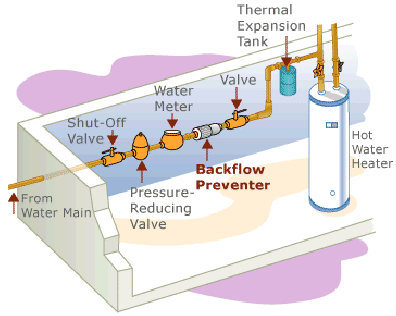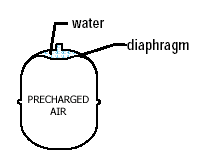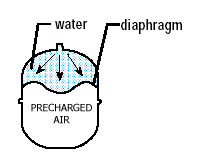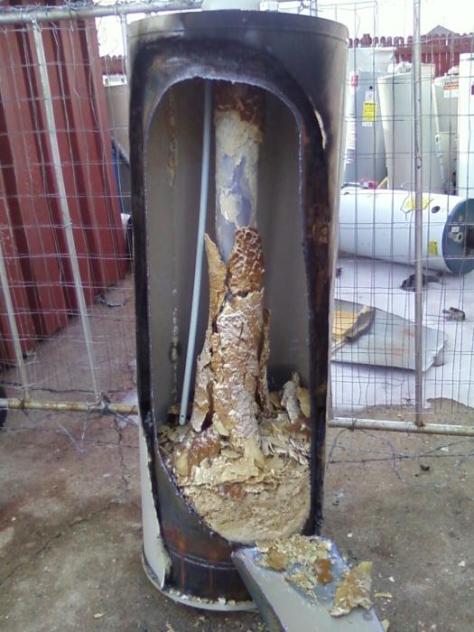There is usually a lot of confusion about the differences between Electric and Gas water heaters. Electric water heaters cost less upfront for the unit and install than gas, but depending on your local utility costs, electric water heaters are typically more expensive in the long run. Gas water heaters generally make up for that cost difference in your utility bills, sometimes even within one year.
Gas water heaters use the heat from burning a fuel (usually natural gas) to heat water, while an electric water heater uses electric resistance coils.
When comparing gas vs electric water heater operating cost, its said that gas is almost always cheaper than electric. Gas water heaters typically cost about $30 a month to run, while electric water heaters run closer to $42 a month, depending on utility rates, of course. This analysis of gas vs electric water heater water heater operating costs is based partially on the fact that natural gas is typically less expensive than electricity. Assume that you already have access to natural gas in your home. Having to put in a natural gas line would add expense and mean that it would take much longer to realize any potential hot water heater savings.
Thermal Expansion
Thermal expansion is important to know about when you have a closed plumbing system in your house. A closed plumbing system is when you have a check valve installed in line, that restricts the water from back flowing into the cold side of the system. A check valve at the at the water meter or a PRV (Pressure Reducing Valve) that will make your home a “closed system”.
Thermal Expansion of water in a closed plumbing system can create a number of annoying and potentially dangerous problems. These include; the build up of unusually high pressure in a system (even when a pressure reducing valve is installed), pressure surges, and the continuous dripping of your temperature and pressure relief valve (T&P). In Addition, dripping faucets, leaking toilet fill valves are also symptomatic of thermal expansion.

More serious problems can also occur due to thermal. When dangerous pressures are built up in a water heater, internal parts may fail such as the internal flues, fittings or water connections. If a flue way collapses it can lead to the potential release of toxic gases, such as carbon monoxide into living spaces. Thermal expansion can also lead to a ruptured or distorted hot water heating tank and may void the manufacturers warranty.
Plumbing codes require you to address this safety issue. No matter what your thermal expansion problem may be, whether for new construction or for retrofitting or remodeling an existing there are plenty of affordable options to fix these issues.
When water is heated it expands. For example, water heated from 90 degrees F to a thermostat setting of 140 degrees F in a 40 gallon water heater. It will expand by almost one-half gallon. This is because when water is heated, its density decreases and its volume expands. Since water is not compressible the extra volume created by expansion must go someplace. During no-flow period in a system, pressure reducing valves, backflow preventers, and other one way check valves are closed. Thus eliminating a path for the expanded water to flow back to the system supply. Hence, system pressure increase. This is where thermal expansion tanks and valves come into play.
Thermal Expansion Tanks and Valves
When the water is heated in a closed system it expands. Water is not compressible, therefore, the additional water volume has to go someplace. When an expansion tank is installed the excess water enters the pre-pressurized tank (set at normal house pressure). As the temperature and pressure reaches its maximum, the diaphragm flexes against an air cushion (air is compressible) to allow for increased water expansion. When the system is opened again or the water cools, the water leaves the tank and returns to the system.

As the water temperature increases, the expanded water is received by the tank.

As the water and pressure reaches its maximum, the diaphragm flexes against the air cushion to allow for increased water expansion.
Thermal Expansion Valves
Thermal Expansion Relief Valves are used in the same circumstance as expansion tanks, but instead of expanding within expansion tank, the expansion will escape within the valve and go out through a drain port routed to your nearest floor drain. These are commonly used when there is not enough room for an expansion tank, when these fail you will see a steady flow of water going through the drain tube rather than a normal couple drips. If this problem goes unnoticed for long periods of time you will begin to waste a tremendous amount of water. So make sure you have this routed to a visible floor drain!
Anode Rods
Most water heater tanks are steel with a thin glass lining to protect the metal from corrosion. Since the lining eventually cracks due to the minerals, rust and sediment in the water. Water heaters need a second line of defense. A long metal “anode rod” that attracts all the corrosive elements in the water. These anode rods are made from magnesium, aluminum or aluminum/zinc alloy. Anode rods usually are completely corroded after 5 years, but if you have hard water and are aware of that, the rod may last as little as 2 years. This is something that can be replaced periodically and can sometimes double the life of your water heater. This little bit of maintenance can really save you money in the long run. People are often unaware that you are able to replace these rods and extend the life of your water heater!
Sediment and Hard Water
Is sediment buildup harmful? The amount of sediment that builds up in your water heater will depend heavily on where you are located. If your city water supply is filtered and you water is naturally soft with little mineral content, then you may have very little sediment, but that little amount of sediment will separate from your water once heated. Build up in the bottom of the water heater tank. In other areas you may have a large build up of sediment.
A small amount of sediment at the bottom of your water heater is not serious, and can be removed by flushing your water heater annually. This can really extend the life of your water heater because the minerals in the sediment attack the tank and cause leaks over time. A deep layer of sediment displaces water and reduces the amount of hot water available for your use. This sediment can also affect the efficiency of your water heater because the burner is then having to transfer the heat through the sediment and can overheat the bottom of the tank. Overheating can weaken the steel and damage the lining of the tank. With Electric water heaters, if the sediment covers the bottom heating element, the element can overheat and burn out. If it gets into got water circulating systems it can cause problems with the pump, valves and fixtures they are serving.
Sediment can cause noises like popping and other strange sounds as water between the tank bottom and layer of sediment turns to steam bubbles. This is a warning sign that your water heater may be on the verge of going out and you should be maintaining your system in a different way in the future. A simple flush could add years onto your water heater, this removes some of that harmful sediment that causes issues within your water heater.
Hard water will have a similar effect as sediment except picture white calcium build up instead of sediment. This can build up much faster in certain situations and will cause very similar issues. If you know your water is extremely hard then you should consider filters, or water softeners. These can make a huge difference for all your fixtures, appliances, look of your water, and most of all the taste. These are all extremely important variables to consider that will save you money in the end. If you address these issues correctly you could increase the life span of your water heater by as many as 5 years in serious cases.
Gas Water Heaters
Cost Less To Operate
Lasts Average Of 13 Years
Takes Less Time To Reheat Water
Works During Power Outage
Less Efficient. More Heat Loss.
Electric Water Heaters
Costs More To Operate
Lasts Average Of 12 Years
Takes More Time To Reheat Water
Won’t Work During Power Outage
More Efficient. No Heat Loss.